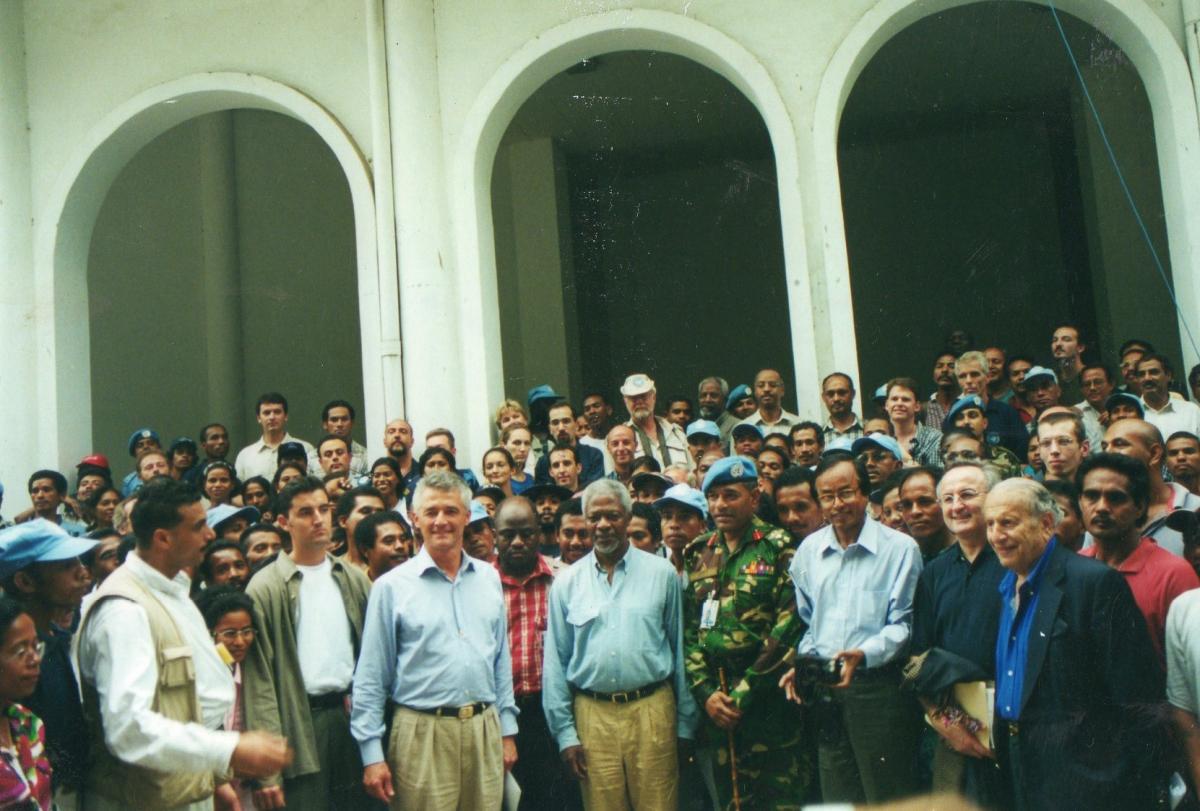Post-Election Phase

The post-election phase in the East Timor popular consultation had the major task of the transition of authority from Indonesia to the East Timorese (either as a territory with a special autonomy status or as an independent country).
During the pre-election phase, UNAMET set a general plan for the legal and institutional framework needed in East Timor regardless of the result of the consultation. After the autonomy option won, in October 1999 the U.N. created its Transitional Administration in East Timor (UNTAET) to exercise legislative and executive authority and support capacity-building for self-government. UNTAET history and documents can be found in its official site.
As well, several organizations witnessed the Popular Consultation. Two of them were the Carter Center and the International Federation for East Timor.
According to their own accounts, the Carter Center’s involvement in East Timor began in June 1999. When Former American President Jimmy Carter, leading an international observer mission for Indonesia’s parliamentary elections, met with East Timorese leader José Alexandre “Xaxana” Gusmao, then under house arrest, he received request for international observers to monitor East Timor’s ballot. The request was discussed with Indonesian President B.J. Habibie, who supported the initiative, and the mission received official U.N. approval soon thereafter.
The Carter Center opened an office in East Timor’s capital of Dili on July 4. From then until the aftermath of the ballot, the mission crafted weekly reports and a final assessment of the vote. The purpose of the Center’s work was to help ensure that the public consultation process was conducted fairly and transparently. Their reports before and after the referendum can be viewed in the Aftermath section of this website: the pre-consultation documents are under the Conflict tab, and the post-consultation material is available in the Violence tab. View the Final Report.
The International Federation for East Timor also published its own account of the consultation.
